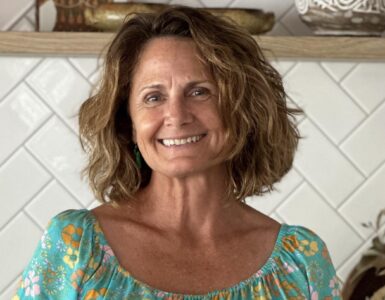Polycystic Ovary Syndrome (PCOS) is a common disorder of the endocrine system that affects 10% to 13% of reproductive-age women worldwide. It can have significant metabolic, reproductive, and psychological impacts on a woman throughout her life. However, the PCOS experience of a fifteen-year-old teenager may vary from someone in their forties. As more research emerges, it’s become apparent that age is an essential factor in successfully managing PCOS.
PCOS in varying age groups
While PCOS is usually detected in women aged twenty to thirty – or when they have trouble getting pregnant and seek medical attention – the condition can be diagnosed as early as two years after the first menstrual cycle. Heavy and extensive menstrual bleeding due to PCOS is common among young girls, as well as hypothyroidism, which can lead to weight gain. They may also grapple with hyperandrogenism or the excess production of male hormones, which causes the endometrium to shed irregularly. This contributes to heavy bleeding. At this stage, teens are typically prescribed iron supplements or birth control medications to manage the condition.
In adulthood, PCOS is associated with abnormally high insulin levels, causing the body to become less sensitive to it. The increase in insulin also propels hyperandrogenism, suppressing ovulation and contributing to other PCOS symptoms like hirsutism (excessive hair growth) or acne due to excessive sebum production. 75% of PCOS patients are affected by insulin resistance in their 20s and 30s. The effects of PCOS can continue well into a woman’s fifties and beyond. A Journal of Clinical Endocrinology & Metabolism study found that postmenopausal women with PCOS exhibited greater inflammation than those without. Yet another study from Diabetes discovered that type 2 diabetes prevalence among middle-aged women with PCOS is 6.8 times higher than similarly-aged women without. Because PCOS is a lifelong and incurable condition, it’s crucial to manage it well, regardless of one’s age.
Managing PCOS at different ages
Diet
Good nutrition is essential for any age, whether to encourage growth and development or lower the risk of chronic diseases. It’s the first intervention for managing signs and symptoms of PCOS, like insulin resistance or weight gain; this is critical as women age due to progressively slower metabolisms. While there is no perfect diet if your goal is to learn how to lose weight with PCOS, a common denominator is a nutrient-rich meal plan that can be followed long-term without feeling deprived. Depending on one’s age, research-based approaches like the DASH, Mediterranean, low-glycemic, or plant-based diets may effectively manage PCOS-related weight gain, fertility, irregular cycles, and excess body hair. Teenagers may need to work on lowering their intake of processed foods, while older women may need to eat more complex carbs to help stabilise their blood sugar levels.
Physical activity
Because fat tissue can generate androgens, even a 5% to 10% decrease in weight can go a long way in managing PCOS. Thus, a proper diet should be supplemented with adequate exercise tailored for a female’s age and fitness level. In terms of exercise plans for PCOS, international guidelines indicate that women with a normal weight range can engage in 150 minutes per week of moderate-intensity or 75 minutes of intense exercise. For obese and overweight women, the numbers go up to 250 minutes and 150 minutes, respectively. Teens could switch to a standing desk and engage in school sports like swimming or track. Adults can join various fitness classes, from spinning to Pilates, which aid in weight management while naturally providing social support. Older women can take daily ten-minute walks, moving up to brisk walking when ready.
PCOS can be incredibly challenging, but it doesn’t have to feel like a life sentence. With positive changes in diet and exercise, the condition can be managed by women from all walks of life.









Add comment